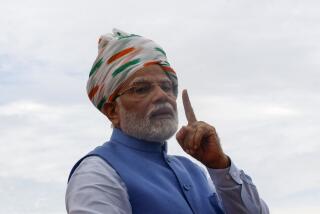Britain Considers Funding BBC With Ads, Not Taxes
LONDON ŌĆö The government said Wednesday that it is studying whether the British Broadcasting Corp. should be funded from advertising revenue instead of government subsidies.
Home Secretary Leon Brittan told Parliament that the government was setting up a committee to assess whether the BBCŌĆÖs income could be supplemented or replaced by taking advertisements.
He also announced that the annual license fee for BBC customers using color televisions would rise to $71 from the present $57.
At present, BBCŌĆÖs two channels carry no advertising. Britain has two commercial channels that carry advertising but receive no money from license fees.
The BBC said in a statement that it was disappointed that the government had not granted its request for an $80 license fee. It said the lower fee will deprive it of $430 million over two years and will make it more difficult to improve programming.
The license fee for black-and-white televisions was raised to $22 from $18. Both increases were effective immediately.
The BBC had been warned by the government to economize. ŌĆ£The BBC should strive for greater efficiency and economy, and there is a limit to what license fee payers can reasonably be expected to afford.ŌĆØ
Until now, advertising has been ruled out for the BBC because of fears that the corporationŌĆÖs programming standards would suffer.
But Prime Minister Margaret ThatcherŌĆÖs government has made a point of trying to reduce the number of state-run corporations, encouraging many of them to go private.
More to Read
Sign up for Essential California
The most important California stories and recommendations in your inbox every morning.
You may occasionally receive promotional content from the Los Angeles Times.









